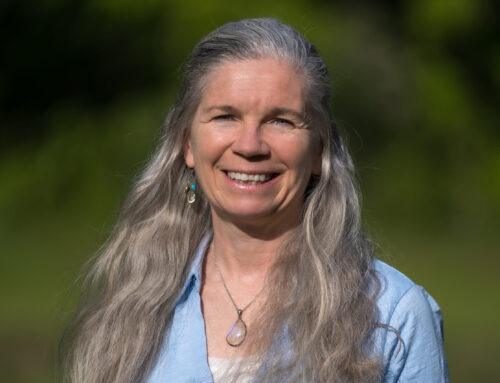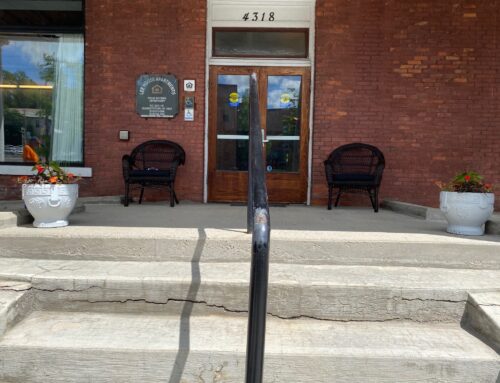Alan Hipps
ELIZABETHTOWN, N.Y. – If success is measured in the number of families helped and lives improved over the course of a career, then Alan Hipps can make the case that long dedication to community preservation and rural advocacy is a road to professional and personal reward.
Hipps, the now-retired Executive Director of the Housing Assistance Program of Essex County (HAPEC), led a team which over the years has helped rehabilitate more than 1,500 homes, developed seven multi-family housing projects, counseled more than 500 first-time home-buyers and administered rental assistance for many hundreds more.
HAPEC is a charter member of NeighborWorks America, a nationwide network of organizations dedicated to improving lives and strengthening communities by providing access to homeownership and safe, affordable rental housing.
Some notable HAPEC community development projects completed under Hipps’ leadership include:
Support for a community medical clinic;
a major Main Street improvement project involving 23 commercial properties;
financing for a local supermarket and a public boat launch;
development of lakefront restaurant; and
a community library project.
Today, HAPEC continues with its guiding mission of rural housing advocacy under Hipps’ successor, Bruce Misarski. Hipps, whose home is in Westport, still puts in hours at the HAPEC office in Elizabethtown and remains a key advisor to the organization.
When Hipps started with HAPEC in 1981, there was a staff of only three working on a rent subsidy program. HAPEC has since grown to a staff of 15 supporting six program areas: Essex and Clinton County home buying assistance, rent subsidy, home repair & weatherization assistance, multi-family housing, home counseling and foreclosure prevention.
HAPEC serves as the program administration and implementation arm of the Essex County planning office. Recently, HAPEC successfully secured up to $1.4 million home repair and rehabilitation funding for the region.
Affordable housing and community preservation remain big challenges for Essex County, Hipps said. He pointed out that the total housing stock in the county has only grown by about 1,000 units since the early 1980s, yet the number of units available to local buyers has decreased. Fully 25 percent of housing units in the county are second homes for those who reside elsewhere.
“The problem we face is finding a way to build the income of the people who work in the Adirondack Park,” Hipps said.
“North Country residents are smart people who can make good decisions. They want to have jobs, a good income, equity in their homes – so they can transfer wealth to their children,” Hipps said. “Otherwise, their reasons for remaining in the Park are limited.”
Essex County’s problems of out-migration – particularly among young adults – are the same across much of the rural U.S., Hipps observed. Community preservation is therefore a matter of survival for the North Country. Westport, Hipps noted, has lost both grocery stores its residents once relied upon.
“In some cases, rural Post Offices are being closed down. It’s hard to make the case that a community can do without a Post Office,” said Hipps.
An avid outdoorsman who likes to hike and canoe in the Adirondacks, Hipps was raised in Tennessee in a career military family. Educated at Jacksonville State University in Alabama, he earned Master of Public Administration degree there and applied to join the Peace Corps at age 23.
By chance, he was asked to fill a need for a housing specialist in Pennsylvania’s coal country.
He traveled to Clarion County, Pa. in 1976 with another recent graduate, Jane Preston. They have now been married for more than 35 years and have two grown children, Jake and Rob.
In Pennsylvania, Hipps founded a Housing Authority and arranged financing for a multi-family housing complex, gaining expertise in Community Development Block Grants (CDBG) and experience navigating the U.S. Housing and Urban Development (HUD) bureaucracy.
Later, Hipps worked as a regional Housing Director in Boise, Idaho and as Housing and Community Development administrator in Anniston, Ala. before landing the post with HAPEC in 1981.
The poor state of home weatherization in the North Country was one of the first big issues Hipps and HAPEC had to tackle. At that time, residents were facing runaway energy costs, and many had antiquated, substandard heating systems.
“Federal programs to address this issue were relatively new. The greatest need was for weatherization and housing system upgrades,” Hipps recalled.
Many North Country families, with help from HAPEC, are now living in better insulated homes with more efficient heating systems. Others are first-time homeowners, having received valuable financial counseling and guidance from HAPEC over the years.
“It was extremely rewarding to work with such a great staff at HAPEC, and our results were gratifying,” Hipps said.
In addition to his work at HAPEC, Hipps directed the Adirondack Community Housing Trust for many years. The Trust provides a means of financing homes to keep them “forever affordable” as ownership changes down the years. The Housing Trust continues to play an active role in supporting affordable housing in the North Country.
“The community trust model is a great model – and it’s growing. There are now about 280 such trusts around the country,” Hipps said. In New York State, new legislation is under consideration to encourage and preserve community land trusts, he noted.
Hipps said he is likely to stay close to the Adirondacks in the years ahead. As to his plans in retirement, Hipps said he hopes to find himself outdoors more often than indoors.


